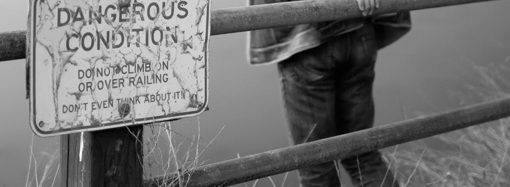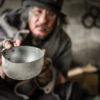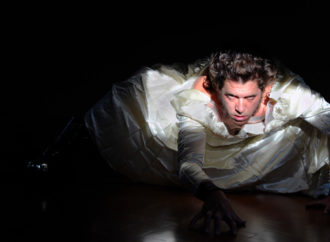Women are as little qualified for military employments as honor, truth, or importance, as they are for every other office in life.

CHAPTER VI.
clown soldier
Whether Women are naturally qualified for Military Offices, or not?
Idle as I think this question, it is necessary to take it into a minute’s consideration, in complaisance to my fair adversary, who is disposed to think it of some importance. Indeed, in one sense I am of her mind: for I cannot help wishing, for the good of my own sex, that the women, however unqualified for military exploits, were obliged to engage in all the wars, civil dissentions, family feuds, and bloody broils they are the original authors of; since, in all probability, their natural aversion to danger would have made them less forward to expose us to it. I would have every jilting coquet, who prides herself in measuring the love of her dupes by the length of their swords, be compelled to act the part of a second in the fray. And as for those Ladies who have pride and prettiness enough to set their families on cutting one another’s throats, to involve their country in civil discord, or to let nations at a bloody strife, I would have them singled out, like so many Curatia and Horatia, to decide the dispute with their own blood, and spare unnecessary slaughter. Thus, knowing themselves doomed to heal at their own cost the mischiefs of their own making, they would be less fond of discord, or we should be less the victims of it. But to expect them to expose their pretty carcasses to perils or hardships for the safety of their country, the good of the public, or the defense of virtue, would be requiring impossibles from them. Magnanimity, as an illustrious author observes, was never expected from that pusillanimous sex. Each sex, indeed, has its perfections, but greatness of soul was never numbered among feminine accomplishments. Nature from the beginning fixed an essential difference between man and woman, not more in strength of body than of mind; and, though she gave them both some virtues not unlike in appearance, yet she distributed those virtues between them in very unequal shares. What is the utmost strength of woman but the struggle of imbecility? What her greatest bravery, but cowardice made desperate?
And yet I will not pretend to say that every woman is a coward, or that any of them are always such: No, women can be sometimes fearless, but that is only when vice inspires their valour. And then what is it they cannot do or dare? For, as Mr. Dryden says after Juvenal,
Each inconvenience makes their virtue cold;
But womankind in ills is ever bold.
Tremula is as tender a Lady, and as easily feared as any I know of her whole sex
Too pretty to tread the ground in a vulgar manner, she cannot stand, though it should be to save her husband from ruin, much less can she walk the enormous length of a room, unless she has a man to lean upon, or the happiness to forget herself. Music, indeed, has a miraculous effect on the harmonious creature, it can solidate her too supple sinews, and give her force to foot it, without fainting, for four and twenty hours together; though her joints are naturally so very weak, that she can seldom succeed to take two steps and a half without tripping. I myself have known her laid up with a cold for the whole winter, by rashly venturing across a boarded entry to her coach before the maid could spread the carpet, for all her husband had warmed her clogs very carefully: and at this very time is dangerously ill of a toothache, which she got by inconsiderately going one night to the play without earrings. What makes the danger greater is that she cannot be bled. The sight of a lancet would throw her into a swoon; and her fits are frequent enough, without seeking occasions to make them more so. She is always in a panic at best. For conscious to herself of being something very precious, she never thinks herself thoroughly safe. The buzz of a gnat will awake her from the profoundest dream of tranquillity; the rustling of her own silks has often set her on trembling; and in another person’s house, she has fainted away at the sight of her own sweet self in a glass, before she had time to recollect the dear idol’s features. All edge tools she has an utter dread of; two cross knives are sufficient matter at any time to metamorphose the fearful thing into an aspin leaf; her husband’s sword, though as harmless as
Harlequin’s sabre, she can tolerate nowhere but at his side; and one day finding him, as she came into his closet, with a razor in his hand, she fairly fell back into the arms of the footman; and what would have been the consequence I cannot say, if Richard had not unlaced her, while his master went after the housekeeper for her Lady’s drops. So delicate and fearful is pretty Tremula. And yet, averse as I am to hazards, I would venture an even wager of a small matter, that if Richard had the sense to feel her pulse, and guess at her constitution, he might enable her to walk three or four miles to an assignation of mischief, in the darkest night, without fear of meeting in the way of a bear, or a bug-a-boe: if I may be allowed this female elegance.
And why not; Viragina is as slender and delicate to appearance as herself; and yet she can do that and more. Strong and stout as the tallest officers in our standing army, horse or foot, she can leap a five-barred gate, keep at the heels of a fox, and set a buck at bay, with the best of them. She can turn her horse adrift, take her dog and her gun on a winter’s day, and without fear of colds or catarrhs ramble miles in the dirt, to a solitary coppice, in pursuit of her game. No weather can keep her at home, and no dangers can fright her from venturing abroad. In the country she can stroll a whole day, from cover to cover, after a brace of woodcocks; and, moon or no moon, can traipse all night through thick and thin from village to village, after a single fidler. In town she is as undaunted; can swagger at a card table, riot at a tavern, and ramble through the streets from bagnio to bagnio, with as much security in a hack as in her own coach; and that at hours when the honester part of the watchmen are scarce safe.
Nevertheless, it cannot be said that this Lady is vigorous and undaunted alike in everything.
No; in every thing that is good and commendable, she is all impotence and panic; and would be full as feeble and fearful as Tremula herself, even in these her favourite amusements, if the toil and danger of them should once assume the face of virtue. ‘Tis mischief then, dear, dear mischief, which spirits Viragina to be so vigorous, and act so valiantly. Vice and mischief alone are capable of making that sex summon all its latent strength, and forget all its fears. Inspired by evil, what will they not hazard? Vice shall make a Thalestris equal to the labour of rambling after an Alexander; make Sheba’s Queen overlook the dangers of a long an unknown road; and humble an Empress, Messalina, a Roman Empress, to walk the streets. Every woman is a Hippia, pressed in the lists of virtue; slow, impotent and heartless, scared by an atom, fainting at a rose. But place the goal of vice, or standard of iniquity within their reach, all volunteers of sin and lust, they’ll hurry to it with the utmost eagerness; forsake their husbands, the tenderest of husbands, forget their children, parents, blood and friends, dare foaming seas, snuff pitch and tar, feed on carrion with a gusto, lie hard, work harder, and go through all sufferable woes to gain the point in view.
Can it then be denied, that some women have strength and courage enough to qualify them for military offices? And yet what Pascal says, in his political maxims, is still true:
Nothing is more certain, than that the fair sex is not only weak and unequal to toil; but even, if truth is no treason, as impotent as they are cruel-minded, ambitious, and greedy of power; which they are to such an excess, that they know no moderation in their disorders, when, shameless enough to herd with warriors, they expose themselves to public view at the head of armies, range troops, march with a regiment at their tail, and value themselves upon their own dexterity in all military exercises. Though when I see any such forward woman, I cannot help thinking I see a monkey aping the actions of a man.
And in reality, what can be more ridiculous or indecent? Is it not full as unseemly a sight to behold a woman giving the word of command to her troops, leading them up to combat in battle array, and giving them the signal of onset, as to see a man knotting, knitting, handling a distaff, or embroidering his wife’s petticoat? The reason is plainly that which Buchanan gives us from Rennodius, that everything unnatural and out of character is offensive, and therefore wrong. And therefore what appears and is, in a valiant man, gallantry, bravery and sturdiness, is, in a forward woman, madness, arrogance and cruelty; as on the contrary, what makes a woman elegant, makes a man deformed; as the dress and ornaments which add grace and dignity to her beauty, but serve to make him a finical, pragmatic, enervate coxcomb. It is no praise then, but rather a disgrace, to any of that soft sex to be qualified for military offices. For, as the same learned writer observes, the more their natural weakness is a curb to their violent sallies of imagination and whim, so when they give a loose to libertinism, the greater lengths are they sure to run, and with the more difficulty are they brought back to their former modesty, if ever they are. And such of them as are something more robust and dauntless than the generality are but the more dangerous evils for being so; inasmuch as their impetuosity of temper is ever more furious. So that when once a woman, impatient of her sex, throws off the soft character which is properly hers, she will never fail to carry her insolence beyond the bounds which even men of any sense fix to their boldness.
And yet I don’t believe it absolutely impossible for a woman to have a true courage, animated by real virtue,
But I look upon such a woman as a miracle, out of the common course of Nature. As such I consider the immortal Boadicea, and as such I profoundly revere the more immortal Sophia, when she tells us, that she could, with more ease and less repugnance, dare the frowns and fury of an already victorious army, which she had forces to resist, than she could stoop to court the smiles of a corrupt minister whom she had reason to despise. Sentiments so like my own compel me to believe her, though a woman; and I admire (I had almost said adore) her for them. Words are but words at best, and hers are no more. But the spirit they are uttered with is a proof to me of their being the overflowings of a heart capable of the execution. But will Sophia pretend to say there are many women like her in this particular; or that the bulk of womankind are not pusillanimous things? If the sun halted once at the valiant Joshua’s word of command, must its course be interrupted for every impertinent bully? And if virtuous courage has taken a seat in one woman’s breast, shall all the heartless generation lay a claim to that extra privilege?
No; miracles allowed for, timidity, like all other defects of men, is an ornamental perfection in women, and inseparable, in some degree or other, even from those virago dames who launch out of nature into affectation.
I will agree with my fair antagonist so far, that the virtuous are always timid;
But can draw no conclusion thence in favor of her sex, till she makes it appear that the timid are always virtuous. The contrary to which I have already so plainly instanced in those little heartless pretty mischiefs, that I need add nothing more to convince a rational creature, that the women are as little qualified for military employments as honor, truth, or importance, as they are for every other office in life, except that for which they were given us, that is, the propogation of human nature.
Previous / “Man Superior to Woman” / Next
Part of the collection of – A Wrinkle In Time
Backed Up and Credited by – no-maam.blogspot.com
































Leave a Comment
Your email address will not be published. Required fields are marked with *